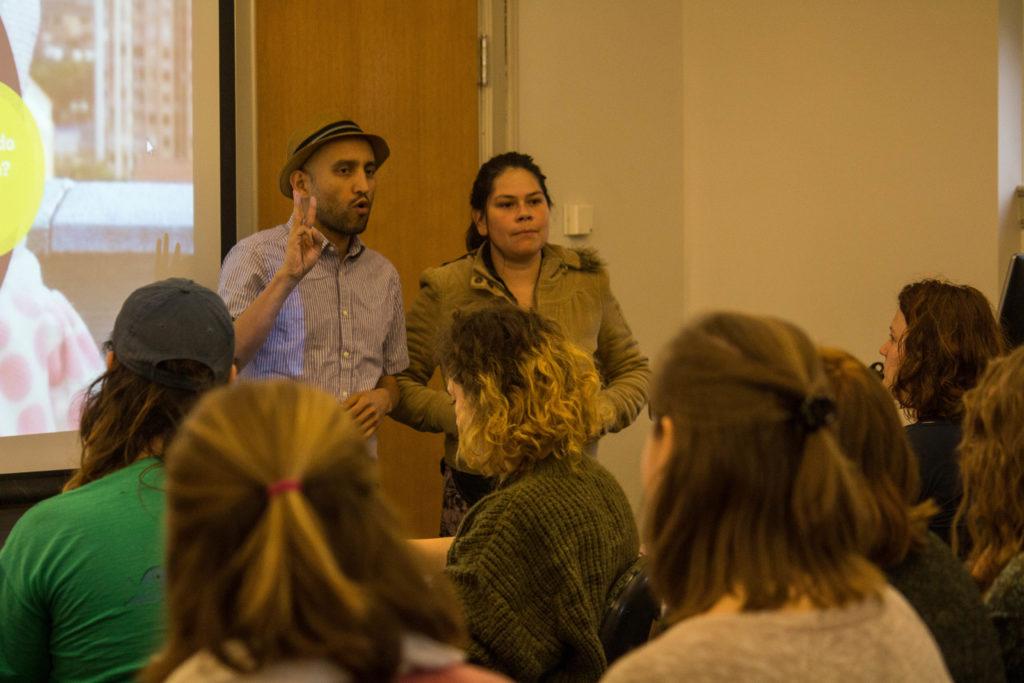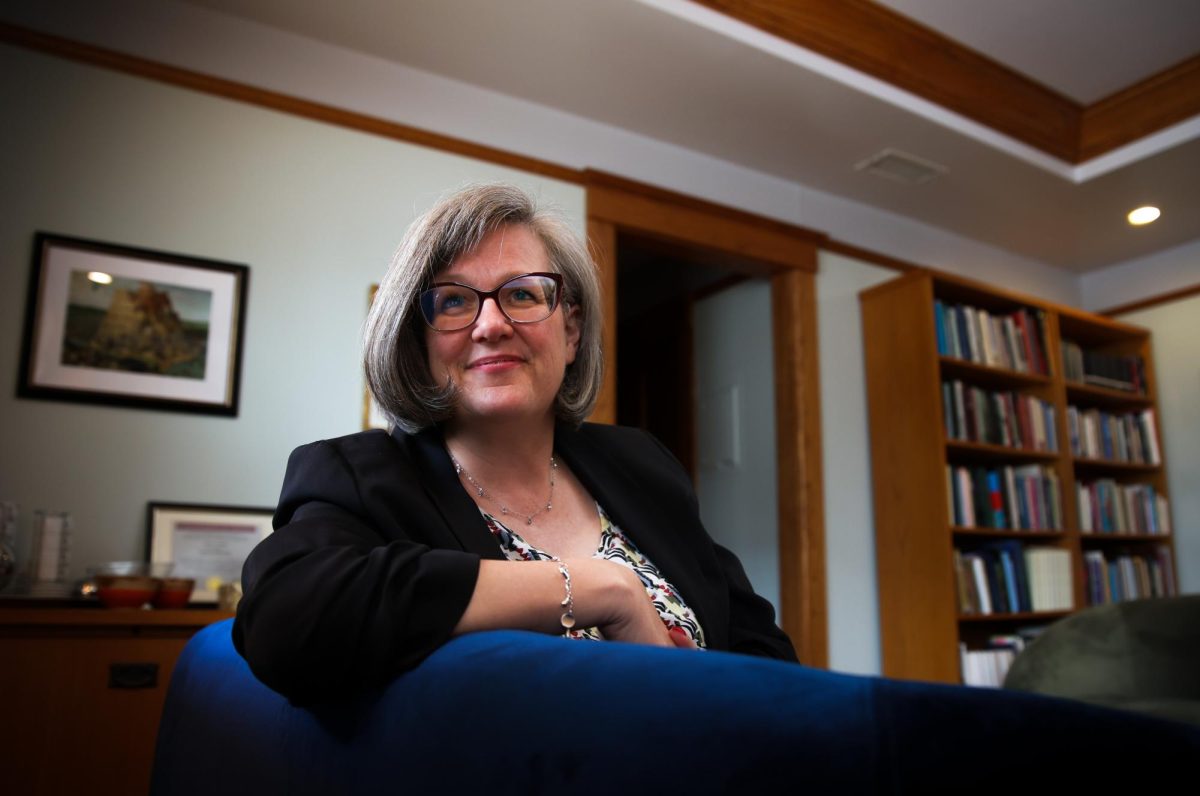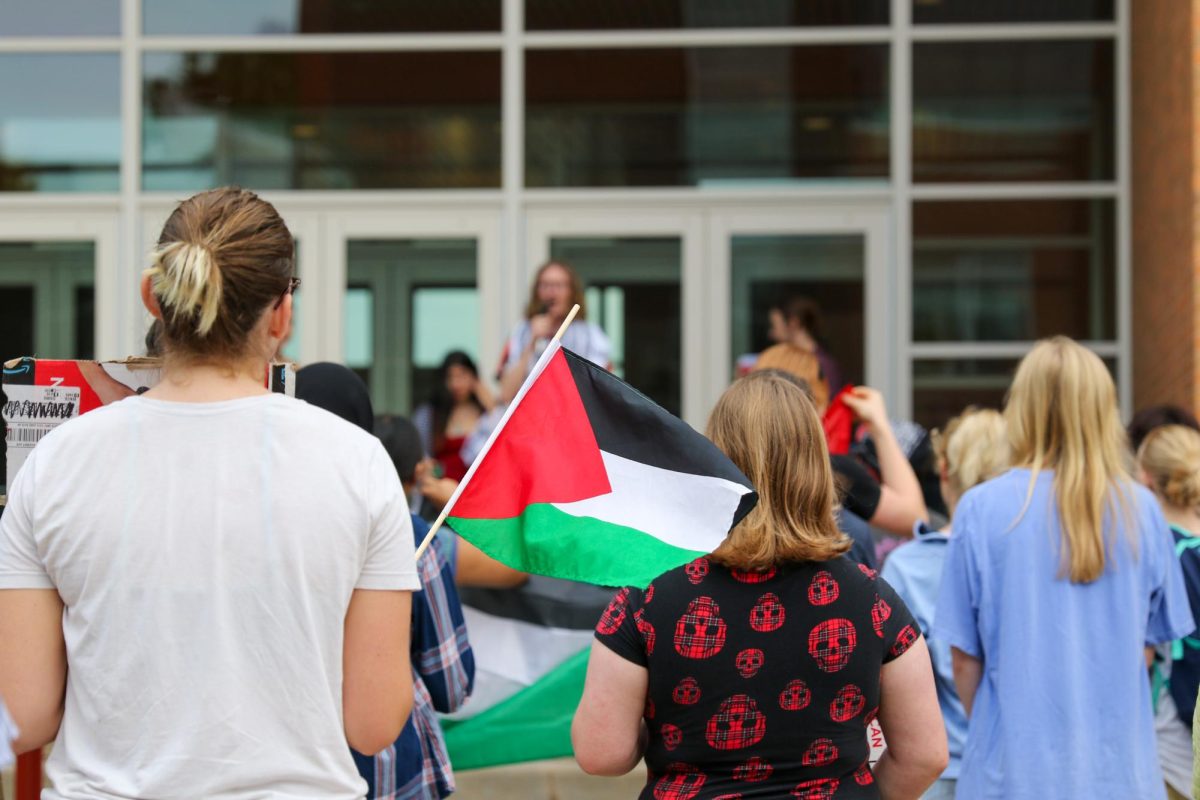By Chloe Wray
wraychlo@grinnell.edu
At noon on Oct. 23, students and staff crowded into ARH 120 to hear Carol Rojas’ talk “Feminist Resistance in Colombia.”
A member of the grassroots Colombian organization “Red Feminista Antimilitarista,” Rojas was accompanied to campus by Liz Moldan, director of Witness for Peace Midwest, and a translator from Witness for Peace who had met Rojas in Colombia.
Witness for Peace Midwest invited Rojas to tour midwestern America in their speaker series, presenting on behalf of her organization and the feminist movement surrounding the negotiation of the current peace accords for Colombia.
The Witness for Peace website states that the Midwest Speaker Series is designed to “work at the grassroots level to promote awareness regarding U.S. policies in Latin America through delegations, speaker tours, and local events and actions in Kansas, Iowa, Minnesota, Missouri, Nebraska, North and South Dakota and Wisconsin. With partners in Latin America, WFP seeks to build peace, justice and sustainable economies for all people.”
In her introduction to the talk, Moldan elaborated on the goals of Witness for Peace, emphasizing the group’s commitment to policy advocacy through education and support of local social justice leaders in Latin American countries to help them accomplish their goals.
Simone Sidwell, Coordinator of the Peace and Conflict Studies Program, explained the College’s affiliation with Witness for Peace in an email to The S&B. “Witness for Peace has regularly come to campus over the years, often co-sponsored jointly by the Rosenfield Program and Peace and Conflict Studies (PACS). This year, the talk was co-sponsored by Rosenfield, PACS, Spanish and Latin American Studies,” Sidwell wrote.
Rojas’ talk centered on the necessity of undoing the patriarchy and the demilitarization of Colombia. In a country where about half of the population is male, almost all of whom are subject to compulsory military service, the degree of militarization is extreme. Rojas argued that the established patriarchy within Colombia places women in an incredibly vulnerable position within the country’s ongoing conflict between the state, two guerrilla groups and multiple paramilitary narcotics groups.

While her platform is rooted in feminism, Rojas contextualizes the efforts in which she is involved as extending past gender inequality to freedom from violence, poverty and racism. Poor people, indigenous groups and Afro-descendent women are in a particularly precarious position within society. The undoing of the patriarchy and demilitarization are linked with the “eradication of the colonial hegemonic model of sex, class and race.”
In her city of Medellín, violence towards women and femicides, or the killing of women based on their gender, is common. Sex exploitation of women and youth is promoted by mafias and allowed by alliances with local governments.
Along with educating women in typically poor neighborhoods on how to advocate for themselves, Rojas and Red Feminista Antimilitarista have advocated strongly for the wants and wishes of women in the new Havana Peace Accords. As a result of the gender committee for the accords, the six major reforms or focuses that were included are as follows: rural reform and reclaim of land for farming, political participation rights, end of the conflict, solutions to the problem of illicit drugs, agreement on the victims of conflict (reparation) and implementation of verification of social groups before endorsement. This aims to give more rights and agency to women and those marginalized within the LGBTQ community.
“We want to live, but not just breathe,” Rojas said. “Colombian women want the possibility of making changes. They do not want to live to mean to avoid death. They want to be given the tools to participate politically and to enter into political change.”
Witness for Peace provided students with the opportunity to become involved with their organization through internships and the possibility for involvement in delegations to Latin American countries as social justice advocates.
“While WFP chose the speaker and issue, the significance of, and worldwide attention given to the recent Colombian Peace Accords, no doubt informed the choice, allowing them to address various issues relating to this high-profile peace process that may not receive as much mainstream attention, including the role of feminism in this case,” Sidwell wrote.



























































